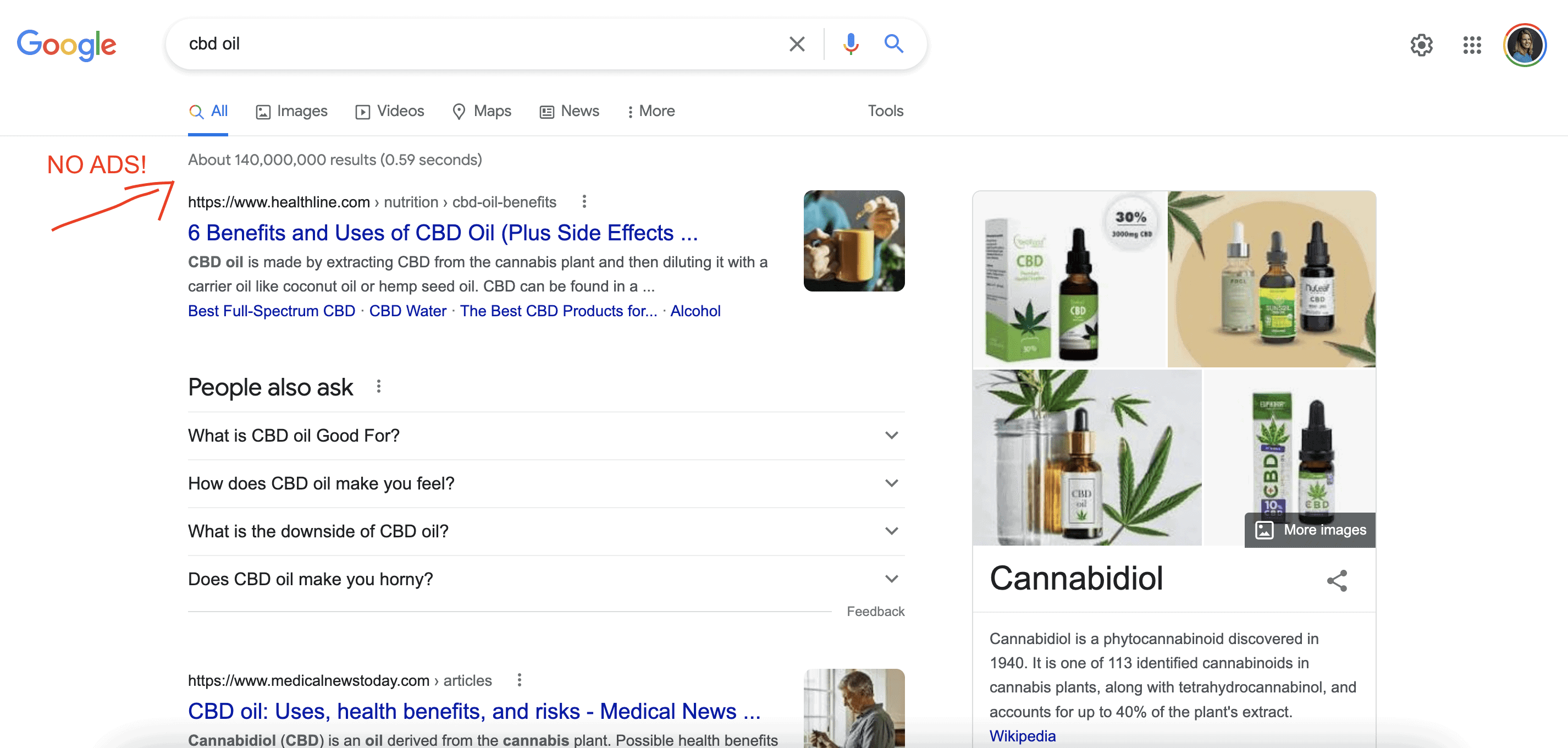How to apply these CBD keywords into your SEO Strategy
At this point, you might be wondering if 2,400 keywords are a bit too much to handle. Should you use all of them, or just a few of them? How do you know which ones would be the best fit for your business? Can you really match your targeted keywords to your target audience? For every question, there’s an answer; allow me to explain a little further.
What makes a good keyword?
A good keyword for your CBD business depends on the type of customer you target, how well-known your brand already is, your site authority, and your overall goals.
In order to choose the right keyword, you have to know your website’s domain authority (
you can check that here), plus the keyword’s search volume, difficulty, and intent. And guess what? All of these things are laid out for you in the list of CBD keywords.
Short-tail vs. Long-tail keywords
When people search on Google, they don’t just enter a single word as their search term. The search would be too broad, and the results would be irrelevant. Instead, the typical search term uses multiple words; this provides much more accurate results. In the world of SEO, we divide these search terms between “short-tail” and “long-tail” keywords.
The “short-tail” keywords are search terms that consist of just one or two words. This means that the search volume is gigantic – and the competition is fierce. For any given search term, there are innumerable websites that want to be found by the people using it. For example, the keyword “CBD” has 368k monthly searches. If you can rank for that keyword, you’re doing great! However, the top 10 SERPs are for the biggest brands, which means that it’s an uphill battle if you’re just starting out with your homemade CBD oil website.
The “long-tail” keywords are search terms that consist of three or more words. The search volume is a lot smaller, but the competition can be a lot smaller too. Since long-tail keywords are very specific, it’s easier to directly target this in your content. For instance, an article that focuses on the question “does CBD show on a drug test” could be more successful than a generic article on “CBD oil”, even though the first keyword has a much smaller search volume.
All things considered, long-tail keywords are generally easier to rank for, and better to target when you’re at the beginning of your SEO efforts.

Search Volume
Keyword search volume reveals how many times a certain keyword is searched for within a defined time frame. The higher the volume, the higher the interest in it. The difficulty will probably also be high, but you can find that out in the second column of the overview.
Keyword Difficulty
Keyword difficulty is a metric that measures the effort it would take for your content to rank on the first page of Google for a certain keyword, using a scale from 0 to 100. In other words, if a keyword is difficult (65+), it would require a lot of time and attention on your part to see results.
Ideally you’d choose the keywords that have a high search volume, and low keyword difficulty!
Search Intent / Keyword Intent
Search intent is the purpose behind a user’s search. Have you ever gotten frustrated when you were trying to learn about how CBD works, but all of the search results tried to sell you CBD oil instead? That’s the kind of thing you’re trying to prevent by adding user intent to your SEO strategy.
Potential Featured Snippet?
A featured snippet is a small excerpt of content that appears at the top of an organic Google SERP. It’s meant to be a short, quick answer for a user’s query, which in most cases is phrased as a specific question. In my overview, I’ve added a formula that selects all keywords that contain words like “How”, “What”, or “Does” to help you target these queries.
For example:
Keyword: how to infuse coffee beans with cbd
Search volume: 1,300
Keyword Difficulty: 22
Intent: Informational
This keyword is a long-tail keyword, with a decent search volume and a low difficulty rating. If you’re a CBD coffee reseller, this keyword could provide some great results for you! In fact, I’d recommend that you dedicate a quality blog article to answering this question in detail. There are no guarantees (since this is SEO we’re talking about, after all)…but you could expect to get some good rankings for it!





